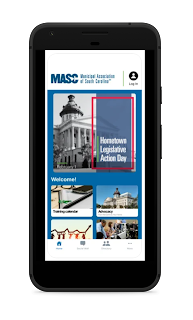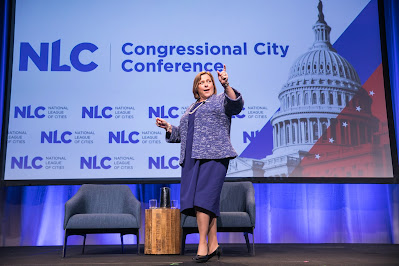Taking place Tuesday, February 1 at the Marriott Columbia, HLAD will offer sessions highlighting the Municipal Association’s Advocacy Initiatives. In a General Session, Matt Lehrman will discuss how to encourage civility between municipal officials and the residents they serve through meaningful community conversation, and SC Secretary of Commerce Harry Lightsey will speak during lunch.
Also on the agenda for Hometown Legislative Action Day are topics such as an analysis of the results of the 2020 census for South Carolina’s cities and towns, a roundtable discussion of law enforcement reform with members of the General Assembly, and a highlight of what the SC Law Enforcement Assistance Program and SC First Responder Assistant and Support Team can do for first responders. The Municipal Association of SC has expanded its focus on advocating for the interests of South Carolina’s cities and towns at the federal level, and one of the sessions will feature a panel discussion with members of Sen. Tim Scott’s and Rep. Ralph Norman’s offices.
Download the app
The Municipal Association’s new app offers details on training opportunities, advocacy updates and job openings, among other resources. Those registered for HLAD and the Municipal Elected Officials Institute of Government on February 2 can also use the app to follow along with the agenda, connect with the speakers, attendees and get updates. Download the app from Google Play and the App Store. Launch the event app by selecting “More” in the bottom menu.
Parking
There is limited parking for HLAD participants in the parking garage behind the Marriott, which has entrances on Hampton and Sumter streets, for $10 per day, payable by cash. Meeting attendees and hotel guests may not park above level 4-A in this garage, or they will be towed.
Additional parking is available at the Cannon parking garage located at 1227 Taylor St., one block from the hotel. At the Cannon garage on Taylor Street, there is a special events attendant in the garage from 7 – 11 a.m. Attendees must pay the special events attendant $10 by cash only and place a parking ticket on the car dashboard.
More information
Beyond HLAD, there are some other steps city and town officials can also take to keep up with what’s happening at the State House:
- Subscribe to From the Dome to Your Home, the Association’s weekly legislative report delivered by email every Friday during the session. The report takes a look at what’s happening with the Association’s Advocacy Initiatives as well as any other legislation with an impact on cities and towns.
- Listen to the City Quick Connect podcast, where the Association’s advocacy staff discuss the week’s legislative happenings during the session.









